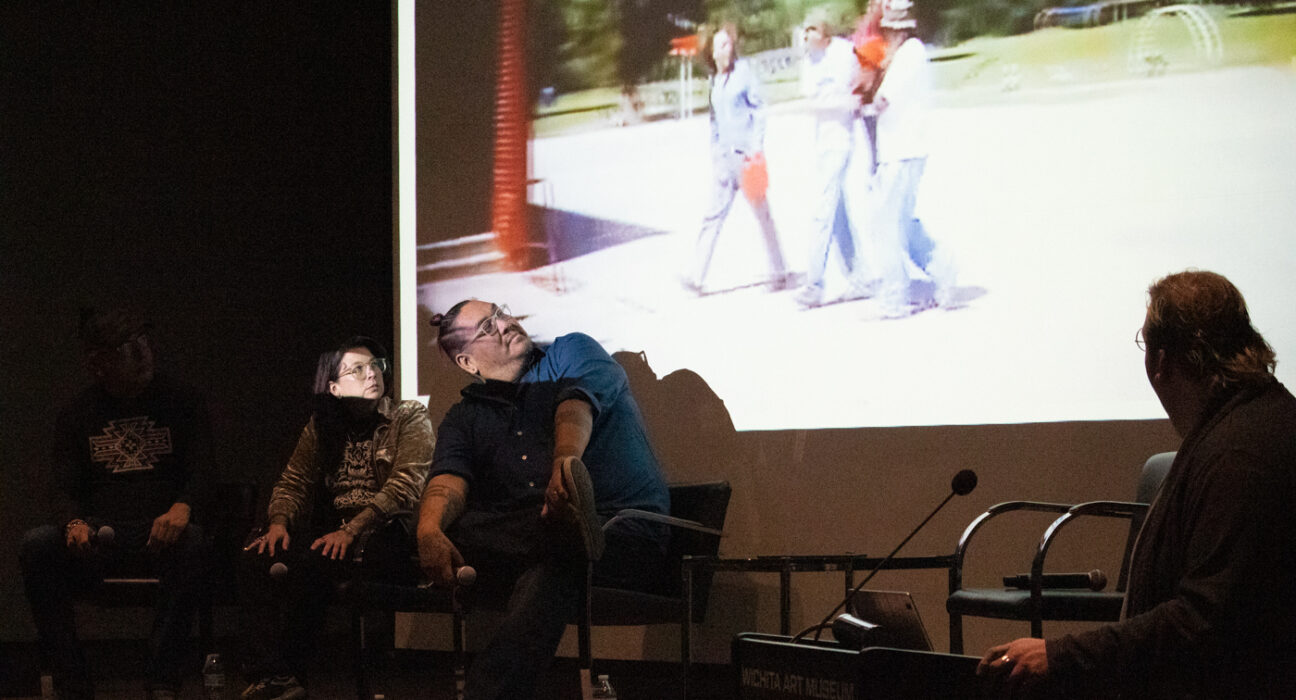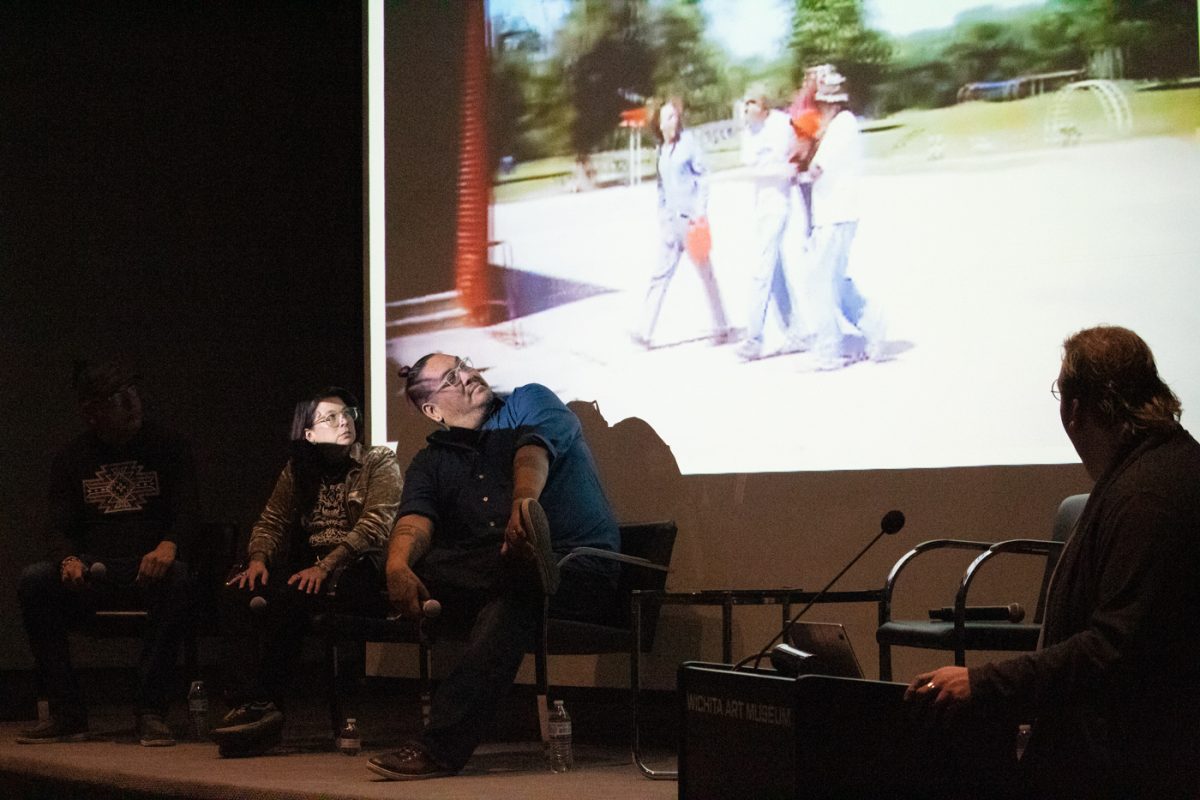Daniel Pewewardy, host of the Indigenous artist talk at Wichita Art Museum on Nov. 24 presents a film trailer by filmmaker Rod Pocowatchit. Beside Pocowatchit, guests Megan Shelton and Marc Lujan join in watching.
Three Native artists across multiple creative facets — film, music and tattoo art — came together for the Wichita Art Museum’s most recent artist talk, hosted by the creative director for the “Twice Removed” exhibit, Daniel Pewewardy. DJ Marc Lujan, tattoo artist Megan Shelton and filmmaker Rod Pocowatchit spoke on being indigenous artists as part of “WAM Nights.”
All three artists touched on the thought processes and personal experiences that affect how they use their respective mediums.
Lujan, a DJ who began his exploration of electronic music in eighth grade, said that he is largely influenced by the work of lesser-known, local musicians — Native and non-Native.
“There’s so much out there,” Lujan said. “With Spotify and all the other streaming sites, I think what gets lost is the little local people trying to make it because the system’s not built for them.”
Shelton’s focus as a tattoo artist is creating a holistic view of her “canvas,” including how the tattoo will look as the body ages and keeping in mind how the human body’s natural movements might distort the piece.
“I’m a big fan of artists who kind of bridge the gap between traditional Americana and traditional Japanese,” Shelton said. “Artists who pursue putting full bodies of work on people, not necessarily just a smaller, single, one-shot tattoo, but a bigger piece that uses the body truly.”
Shelton, who is Ponca, Creek and Seminole, touched on the challenges of being historically accurate when incorporating indigenous culture into tattoo art.
“There’s just a huge lack of reference,” Shelton said. “People will be traveling and be like, ‘Oh, I’m going to buy this postcard with this Native American on it,’ but it was actually a white lady in a wig.”
To avoid this, Shelton stressed the importance of researching the specific styles of headwear and dress worn by indigenous tribes before sitting down to create.
Pocowatchit, who is Comanche, Pawnee and Shawnee, said that the increasing presence of Native Americans in film motivates him to keep creating.
“One of my goals is to see more Native Americans represented in pop culture,” Pocowatchit said. “With ‘Reservation Dogs’ being such a hit … that level of creativity being out there makes it seem possible.”
One way Pocowatchit incorporates his indigenous background into his films is by including the lessons and stories indigenous children grew up hearing. According to him, he does this for other Native Americans to recognize and identify with it, not to explain it to a non-Native audience.
“One of the things you grew up knowing is you’re not supposed to whistle in the dark,” Pocowatchit said. “So I put that in one of my movies (and) didn’t really explain it.”
He also spoke on facing the daily challenges of being an artist and how a creative person’s environment often requires resilience.
“I often liken it to putting on armor,” Pocowatchit said. “You’ll get knocked down and knocked around … it’s not always friendly. It’s tough to be an artist, any artist.”
For younger, upcoming artists, Lujan said that networking is a crucial tool in growing an audience.
“Get your face out there. Show people that ‘yes, I’m here,’” Lujan said. “That’s really going to be your backbone going forward is just meeting people and being a face in that sort of crowd.”


